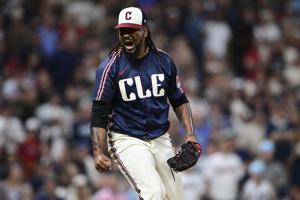History of Sports Betting Scandals: From the Black Sox to Today

Betting scandals have long plagued professional sports, but a pivotal ruling by the U.S. Supreme Court in May 2018 has intensified concerns surrounding gambling. This decision overturned a federal law prohibiting sports betting in most states, allowing online sportsbooks to flourish within the sports landscape. The following overview highlights some of the most significant scandals in sports betting history, illustrating the ongoing challenges leagues face in maintaining integrity.
Historical Scandals in Professional Sports
The infamous Black Sox Scandal of 1920 marked one of the earliest high-profile incidents. A grand jury in Chicago indicted eight players from the Chicago White Sox for conspiring to fix the 1919 World Series. Despite a jury’s not guilty verdict, these players, including the notable Shoeless Joe Jackson, were permanently banned from baseball by commissioner Kenesaw Mountain Landis.
In the following decades, several other sports faced similar crises. In 1946, Babe Pratt, an NHL Hall of Famer, was suspended for gambling, although he returned shortly after. By 1948, the NHL had issued lifetime bans to players Billy Taylor and Don Gallinger for betting on games.
The issue escalated in 1951 when accusations emerged against 35 players for fixing at least 86 games between 1947 and 1951. This included four members of the University of Kentucky team, implicated in accepting bribes prior to an NIT game against Loyola. An NCAA investigation led to the cancellation of Kentucky’s 1952-53 season due to multiple violations.
The sports world witnessed a series of additional scandals through the late 20th century. In 1980, two Italian soccer teams faced penalties due to match-fixing in a scandal known as “Totonero,” resulting in a ban for star player Paolo Rossi. In 1989, baseball legend Pete Rose accepted a lifetime ban after it was revealed he had bet on the Cincinnati Reds while serving as both player and manager.
Recent Developments and Current Cases
As sports betting became more mainstream, various scandals continued to emerge. In 1996, 13 players from Boston College‘s football team were suspended for gambling, leading to the resignation of coach Dan Henning.
More recently, in 2023, the NHL issued a 41-game suspension to Shane Pinto of the Ottawa Senators for gambling violations, although it stated there was no evidence of him betting on hockey games. The NFL has similarly dealt with gambling issues, suspending at least 15 players for violations, including Calvin Ridley, who received a full season ban for betting on NFL games in 2022.
In 2024, former Wales rugby captain Rob Howley faced an 18-month suspension after admitting to making 363 bets, including wagers on matches involving his own team. The same year, Toronto Raptors forward Jontay Porter received a lifetime ban after disclosing confidential information to bettors, leading to an investigation by the NBA.
The gambling landscape continues to evolve, with Phil Mickelson emerging in the spotlight for allegedly wagering over $1 billion over three decades. Although he denied betting on the Ryder Cup, he acknowledged his gambling had escalated to addiction levels.
In a notable incident in 2023, several soccer players, including Ivan Toney and Sandro Tonali, faced bans for gambling violations, underscoring the ongoing fight against corruption in sports.
The complexities of sports betting and its implications for players and teams remain a pressing issue for leagues worldwide as they strive to maintain the integrity of their games. The history of scandals serves as a reminder that vigilance is essential in safeguarding the spirit of competition.






